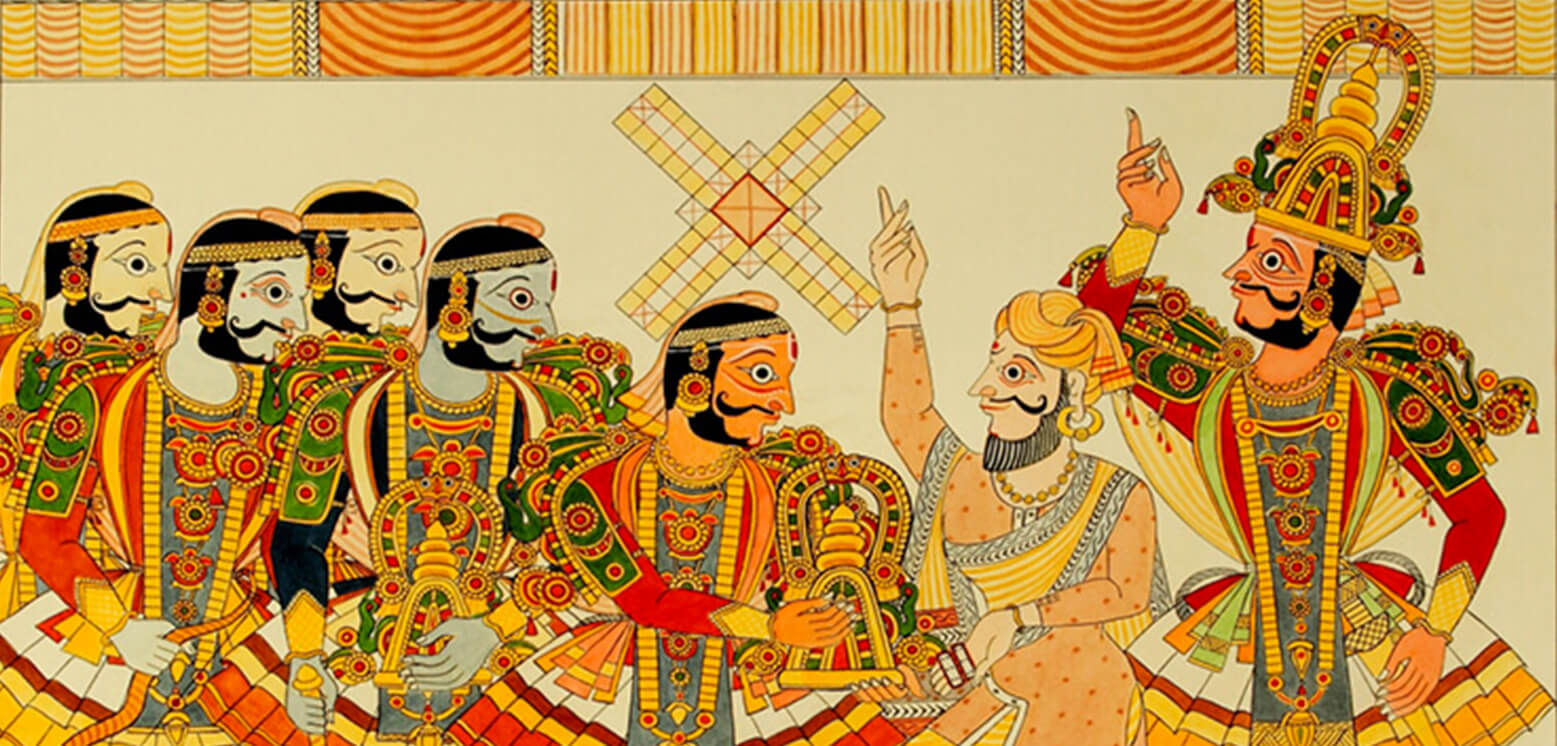
In the quintessential Indian epic Mahabharata, the character of Duryodhana has been of an unmitigated villain. But there is an alternative narrative about him. He was denied the throne – due to his lineage, and even though he was equal to Arjuna in skill and strength, he was less favoured by teachers and elders. He bit down snubs and insults all his life and watched his cousins be more favoured through life stages. It seemed to him that the path of dharma was created to favour those with an advantage of birth – and to forever deny him any possibility of winning the kingdom.
This virile, skilled and courageous warrior vowed to claim the throne – through fair means and foul – and avenged his humiliation by a sneering Draupadi and the mocking Pandavas through many actions deemed heinous by the nobility. He was to have been content with his lot – as meritocracy was not even an option, for questioning that would have been questioning the rightful path.
India is at a cross-roads today. We have been a nation where caste and class privileges have existed for millennia, and unspoken rules have ‘kept people in their place’ through language, culture and traditions. But the burgeoning population of aspirers are no longer willing to follow the codes of their parents. The son of a maid servant wants pizza and not the leftovers his mother ate. The daughter of a barefoot salesman wants to become an air-hostess, and no longer wants to marry a dowry seeking good-for-nothing who would take to drink and beat her up. No longer is this generation okay with anything being denied to them – because of an accident of birth. No longer are there boundaries of ‘you can see but can’t touch’. There was an unwritten code that a rickshaw driver could never hope to date an English speaking educated girl from a different socio-economic strata. Movies such as Raja Hindustani were fantasies and everyone came away happy acknowledging them as such. They were films without the realism and grit of real life. But a wildly successful movie called Raanjhana changed that fantasy into an attainable reality.
“Gali ke laundon ka pyaar aksar doctor aur engineer le jaate hai..dil chota na kar”, says Mohammed Zehshaan to Dhanush. To which Dhanush replies, “Ye Benaras hai launda yaha bhi nai jeeta toh fir kahan jeetega”. ( when his friend says that girls prefer Doctors and engineers, Dhanush replies that if he can’t win in Benaras then where is he going to win. ) In another scene, he slits his wrists to show Sonam Kapoor how much he loves her and when she protests, he says the next time will be your wrists. This underlying premise that nothing or no one is off limits is the new narrative.
The positive outcome of this has resulted in a new Indian reality where stories of a vertical transcending of boundaries abound. The son of our erstwhile gardener now works with an IT firm in Stanford, CT; and the daughter of the janitor of my school owns a successful salon. In this new India, start-up successes are from first generation entrepreneurs and opportunities hitherto available to only the English speaking ‘middle-class’ have opened up to everyone.
The flip side however, is the sense of entitlement in grabbing and taking whatever you wish. The 20 year old son of a rural contract labourer in Latur district has a Samsung Galaxy II – bought second-hand for 16k! Entirely paid for by the father (annual income 85k), the young man has no hopes of earning this. He does not want to work like his father. He is qualified for nothing else. The culture of rape – where no morality exists and no one is out of bounds and where personal gratification is the only driver – is for similar reasons. I must have it – I am entitled.
We are in the midst of deep and profound social change – and however reprehensible, the current social environment is reflective of a generation whose time has come. They will not be denied anything. This feeling is revolutionising India and creating a new social order.
In this age of Duryodhana – we need to understand this aspiration and find ways in society of bridging the social chasms and create new codes for this society. A new India needs new rules.